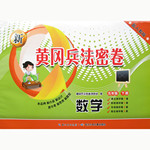题目内容
【题目】My father was a foreman of a sugar-cane plantation in Rio Piedras, Puerto Rico. My first job was to drive the oxen that ploughed the cane fields. I would walk behind an ox, guiding him with a broomstick. For $ 1 a day, I worked eight hours straight, with no food breaks.
It was very tedious work, but it prepared me for life and taught me many lasting lessons. Because the plantation owners were always watching us, I had to be on time every day and work as hard as I could. I’ve never been late for any job since. I also learned about being respectful and faithful to the people you work for. More important, I earned my pay; it never entered my mind to say I was sick just because I didn’t want to work.
I was only six years old, but I was doing a man’s job. Our family needed every dollar we could make because my father never earned more than $ 18 a week. Our home was a three-room wood shack with a dirty floor and no toilet. Nothing made me prouder than bringing home money to help my mother, father, two brothers and three sisters. This gave me self-esteem(自尊心), one of the most important things a person can have.
When I was seven, I got work at a golf course near our house. My job was to stand down the fairway and spot the balls as they landed, so the golfers could find them. Losing a ball meant you were fired, so I never missed one. Some nights I would lie in bed and dreamt of making thousands of dollars by playing golf and being able to buy a bicycle.
The more I dreamed, the more I thought. Why not? I made my first golf club out of guava limb(番石榴树枝) and a piece of pipe. Then I hammered an empty tin can into the shape of a ball. And finally I dug two small holes in the ground and hit the ball back and forth. I practiced with the same devotion and intensity. I learned working in the field — except now I was driving golf balls with club, not oxen with a broomstick.
【1】The writer’s first job was _______.
A. to stand down the fairway at a golf course
B. to watch over the sugar-cane plantation
C. to drive the oxen that ploughed the cane fields
D. to spot the balls as they landed so the golfers could find them
【2】The word “tedious” in Paragraph 2 most probably means _______.
A. difficult B. boring
C. interesting D. unusual
【3】_______ gave the writer serf-esteem.
A. Having a family of eight people
B. Owning his own golf course
C. Bringing money back home to help the family
D. Helping his father with the work on the plantation
【4】Which of the following statements is true according to the passage?
A. He wanted to be a successful golfer.
B. He wanted to run a golf course near his house.
C. He was satisfied with the job he got on a plantation.
D. He wanted to make money by guiding oxen with a/span> broomstick.
【答案】
【1】C
【2】B
【3】C
【4】A
【解析】
试题分析:本文讲述作者的奋斗史。作者第一份工作是赶牛,虽然无聊但教会了他许多经验。七岁时第二份工作是在高尔夫球场做球童,并梦想成为高尔夫手从而努力奋斗的故事。
【1】C细节理解题。根据第一段第二句My first job was to drive the oxen that ploughed the cane fields可知作者第一份工作是驱赶牛让牛在田里犁地,故选C
【2】B词义猜测题。根据第一段第三句I would walk behind an ox, guiding him with a broomstick作者就是走在牛的后面用扫帚带领牛,可知这份工作应是无聊的,故选B
【3】C细节理解题。根据第三段最后一句Nothing made me prouder than bringing home money to help my mother, father, two brothers and three sisters. This gave me self-esteem(自尊心)可知带钱回家帮助家里,这给了作者自尊心,故选C
【4】A分析推理题。根据倒数第二段最后一句dream of making thousands of dollars by playing golf他想通过打高尔夫挣钱即他想成为一个成功的高尔夫手,故选A

 新黄冈兵法密卷系列答案
新黄冈兵法密卷系列答案